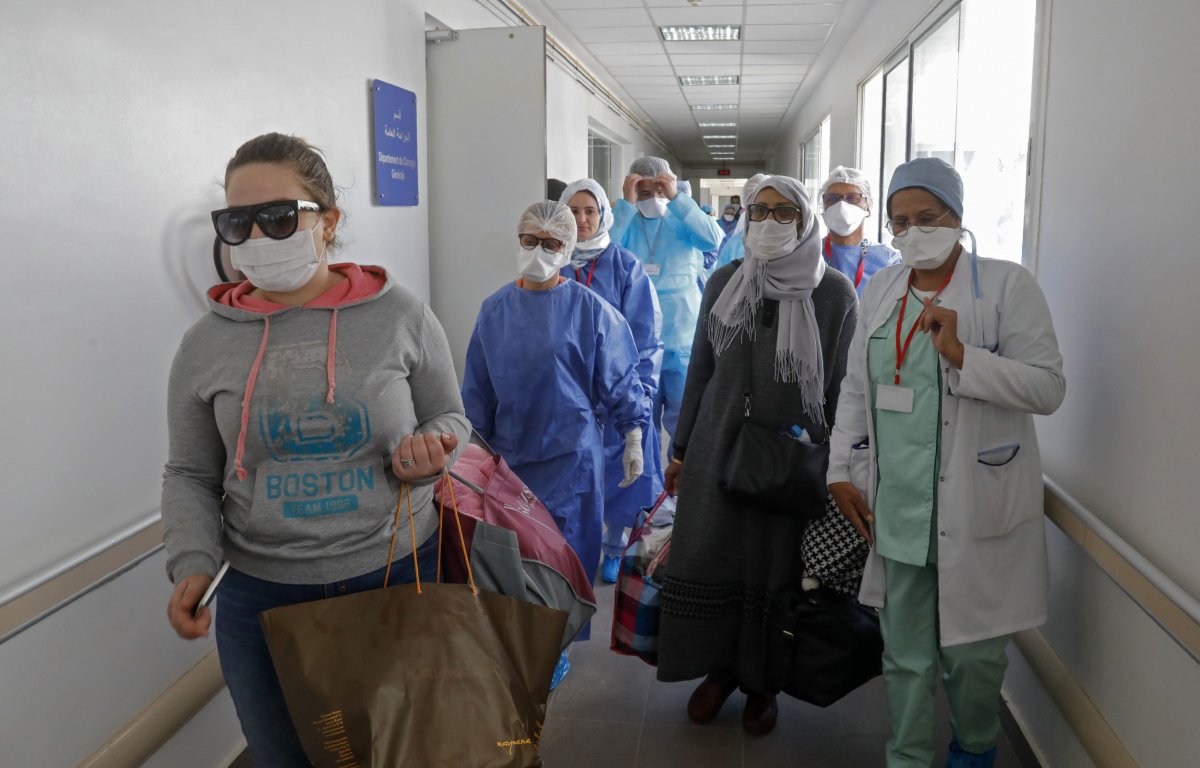More than 300,000 people worldwide have recovered from a new coronavirus that's spread to every inhabitable continent on the globe.
On Tuesday, global cases rose to 1,426,096, with more than 387,547 cases in the United States, where the largest outbreak is occurring. Of those people, 300,054 have recovered, including 21,763 in the United States.
Along with being a positive piece of news during a dark time, increased recoveries could potentially lead to even more people recovering. Those who have fully recovered from COVID-19, the disease caused by the virus, have antibodies in their plasma, a liquid component of blood, that can attack the virus. By transferring their plasma to COVID-19 patients who are seriously ill, officials are hoping to give them some passive immunity to the virus.
It's unclear if the plasma transfer will be an effective treatment, according to the Food and Drug Administration (FDA), but some information suggests it might help people recover.
Dr. Michael Joyner, a lead researcher of the Mayo Clinic's convalescent plasma program, said they'd administer the product to a range of patients, including those already in the intensive care unit, to understand how it impacts the course of their virus. But, the number of people who can potentially be helped is dependent on survivors donating.
"I think it's very important for the general public to understand this is not like a drug where we can increase the number of shifts and ramp up the production line at a drug company," Joyner said. "This is a biological product that has to be obtained from a specific set of patients."
Potential donors must be at least 17 years old and weigh a minimum of 110 pounds, be in good health and feeling well and be symptom-free for at least 14 days prior to donation, according to the Red Cross.

America isn't the only country utilizing plasma from recovered patients as a potential treatment. Convalescent plasma was used to treat MERS patients in South Korea in 2015 and on March 31, the Korean Centers for Disease Control and Prevention (KCDC) announced they'd allow plasma to be used in COVID-19 patients, as well.
On Tuesday, Severance Hospital in South Korea said two patients recovered from COVID-19 after receiving a plasma treatment, according to the Korea Times. One patient, a 67-year-old woman with a medical history of hypertension, had been released from the hospital in "good shape." The other patient, a 71-year-old "previously healthy" man, was successfully weaned off a ventilator, according to details published in the Journal of Korean Medical Science.
Of the 10,331 cases in South Korea, according to the Johns Hopkins tracker, 6,694 have recovered, according to the tracker.
The most recoveries, 77,410 people, have been in China, where officials reported 82,718 cases. Although, some officials and experts question whether China properly reported their cases. In Spain, the second-largest outbreak worldwide has had 140,618 cases and 43,208 recoveries.
News of increased case counts and rising death tolls can easily foster fear and incite panic, so officials have encouraged people to consider the full context of the situation. Nurses in New York and in Europe have even started clapping as patients are discharged from the hospital and sharing the inspirational videos online.
But, the outbreak could continue for months and it'll be until at least the end of April before social distancing measures are lifted in the U.S. In a time when complacency can cost lives, officials are urging people to continue doing their part to slow the spread of the virus by practicing proper hand and respiratory hygiene and staying home.
"We're going to have a rough week, maybe a little more than a week, but there's tremendous light at the end of that tunnel," President Donald Trump said on Monday.
Uncommon Knowledge
Newsweek is committed to challenging conventional wisdom and finding connections in the search for common ground.
Newsweek is committed to challenging conventional wisdom and finding connections in the search for common ground.
About the writer
Jenni Fink is a senior editor at Newsweek, based in New York. She leads the National News team, reporting on ... Read more
To read how Newsweek uses AI as a newsroom tool, Click here.






